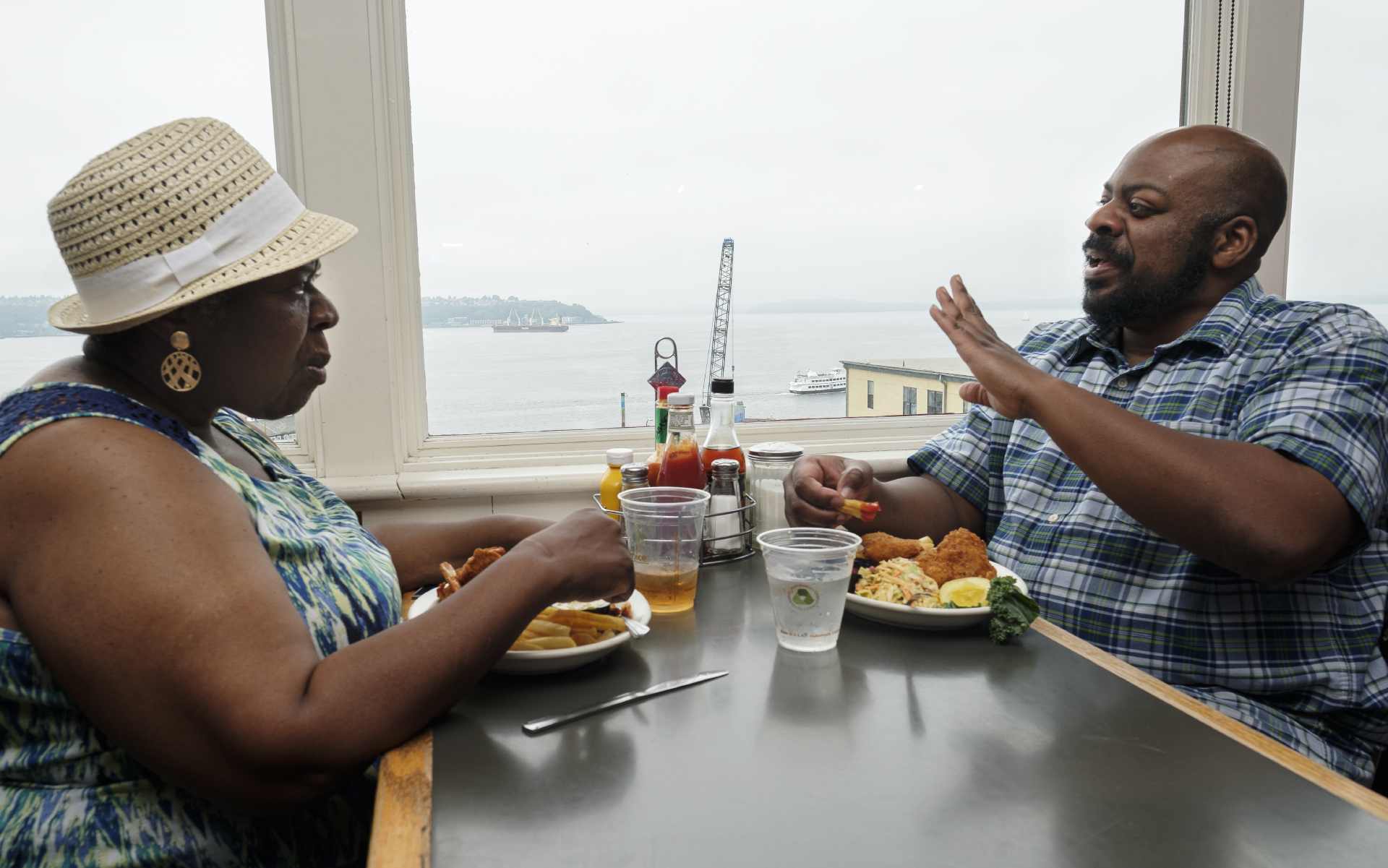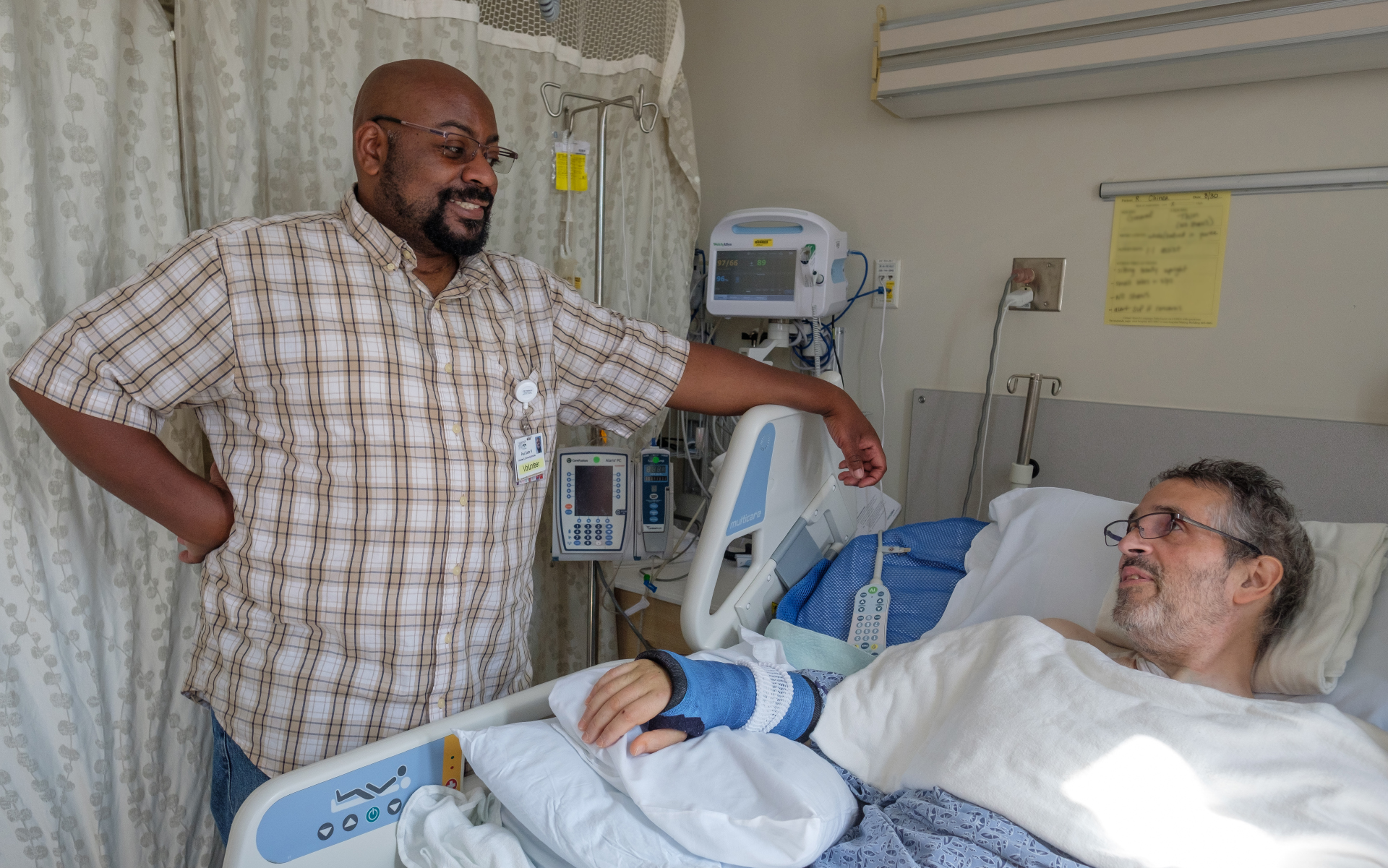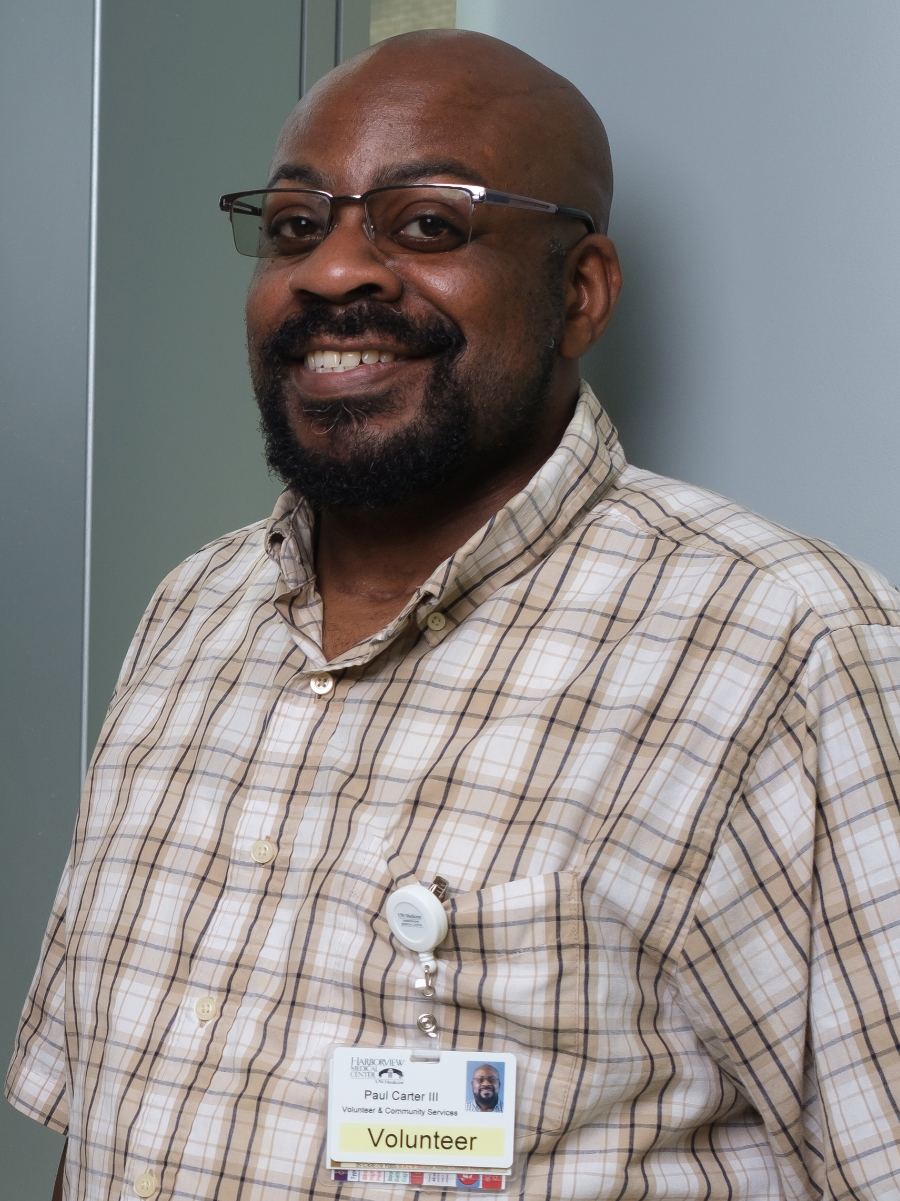A patient uses his traumatic experience to heal others
“Are these my real teeth?” That was the first question Paul Carter III asked his mother, Yvette Carter, when he awoke at Harborview Medical Center. He had to use a whiteboard to ask her, because his jaw was wired shut.
Although he doesn’t clearly remember the events that led to his injury, he does remember that he was on his way to diffuse a tense situation. He wasn’t expecting there would be guns.
Slowly, with the help of his mother and the whiteboard, Carter pieced the story together.
He learned that a bullet had gone through his jaw, tearing his esophagus in half. He was rushed to Harborview, where surgeons repaired his esophagus, put in a tracheotomy tube and addressed bleeding complications by removing half a lung. He was in a coma for three days.
Carter’s mother also confirmed that all of his teeth were his real teeth. Then she had to deliver the news that was hardest for Carter to hear: His friend, who was also involved in the altercation, had died.
While processing that loss, Carter was also beginning to realize that he had a long, difficult journey ahead of him. His doctors told him there was a chance he might never eat, drink or speak normally again.



